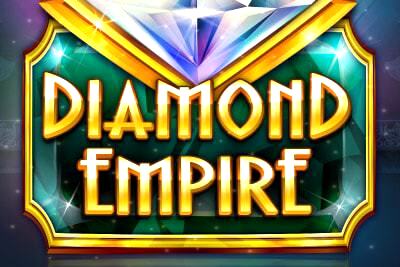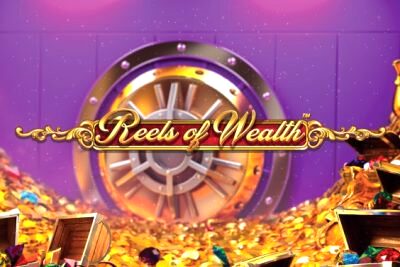Are Online Slots Legit?
Slots have a storied history with roots going back to the late 19th century. However, it wasn’t until the 1960s that this gambling genre took off due to the invention of fully electromechanical machines. Once the mid-1990s rolled around, online reel-spinners appeared, and things have never been the same again.
Today, thousands of online casinos are floating around the world wide web, and they are home to over fifteen thousand slots. With so much variety on the market, those new to this pastime may wonder about game fairness. Who is in charge of ensuring that everything is on the up and up and are digital slots 100% legit?
Online Casino Regulators
Online gambling is the service of providing chance-based games for real money. For a company to operate in this industry, it first must get permission to do so from a government-approved overseeing body that regulates this sector. Though, this is not mandatory in all countries. Some have super-lax legislation. A person or team can run their business from a region with no laws concerning internet gambling and provide such games to clients worldwide. However, these platforms have no credibility, and almost every player out there avoids them.
When it comes to the US, each state has its laws regarding this activity. Currently, only Michigan, Delaware, New Jersey, Pennsylvania, and West Virginia allow online casinos to operate from within their territory and offer gaming services to their residents. Each one has its regulator that provides operators with licenses to run their businesses. For example, in New Jersey, the Division of Gaming Enforcement is the state’s official regulator. Nevertheless, offshore brands also provide rated online slots that are just as legit. These platforms get operational approval from international organizations such as Curaçao Gaming Control and the Gibraltar Gambling Ordinance.
For a company to attain any of these licenses, it has to go through a stringent process that involves background and security checks, financial and tax audits, technical tests, and so much more. The licensor must ensure that the operator it is allowing to operate is financially stable and honest. It also must react in the cases that involve player complaints stemming from their use of the operator’s service.
Third-Party Testing Agencies
Slots are the bread and butter of the interactive gaming industry. They account for over 70% of all revenues in both segments, online and offline. Thus, they are by far the most played games in digital lobbies.
Computer algorithms called random number generators are responsible for producing reel-spinner results. These are software whose job is to indiscriminately create numbers that decide what symbol combinations form on a game’s reel grid. They work by taking one number and running it through complex mathematical operations that produce a new one. Then they repeat the process using the newly acquired figure.
Gaming operators subject all their products to random third-party testing. The agencies that conduct these examinations are a crucial part of the industry. They put RNG algorithms through extensive trials to discover if this software complies with a regulator’s rules. Meaning is randomness guaranteed, and are all the games minimum return-to-player percentages set to the licensor’s guidelines.
The industry’s most famous testing agencies are eCOGRA, GLI, TST, AND iTech Labs.
Provably Fair Games
Provably fair games are a concept that got introduced into the interactive gaming space in this last decade. It popped up with the emergence of Bitcoin casinos. In essence, these are products that let you set a seed number used by a game’s RNG or reset the current one. The seed is the original number used in the mathematical operation. A proper analogy would be a blackjack dealer reshuffling the deck after every hand. These games also allow you to verify how the algorithm reached its outcome.
The invention of provably fair games removes the need for third-party testers, given that you can intervene in the outcome generation process. However, you still do not know anything about the underlying mathematics of a given game. Thus, you cannot be 100% sure that everything is indeed random. A benefit of these products offered at crypto gambling sites is that they feature a return-to-player that is usually higher than slots offered at regular online casinos.
Final Thoughts
If you want to get a simple answer to the question – are online slots legit, then that’s a yes. When it comes to fairness, there is no difference between pulling a lever at a Las Vegas gaming floor and pushing the spin button on your smartphone. Both sectors get regulated by organizations whose job it is to ensure that all game results are random. The benefit to playing via the internet lies in that since online operators have lower overhead costs, they can provide products with a higher return-to-player percentage.
About the Author
Shelly Schiff has been working in the gambling industry since 2009, mainly on the digital side of things, employed by OnlineUnitedStatesCasinos.com. However, over her eleven-year career, Shelly has provided content for many other top interactive gaming websites. She knows all there is to know about slots and has in-depth knowledge of the most popular table games. Her golden retriever Garry occupies most of her leisure time. Though, when she can, she loves reading Jim Thompson-like crime novels.
Top Slot Game of the Month
 Sign Up to Play
You'll get a Generous Welcome Bonus
Sign Up to Play
You'll get a Generous Welcome Bonus
Best 5 Slot Games
-
 1
Register to Play
1
Register to Play
-
.jpg) 2
Register to Play
2
Register to Play
-
 3
Register to Play
3
Register to Play
-
 4
Register to Play
4
Register to Play
-
 5
Register to Play
5
Register to Play